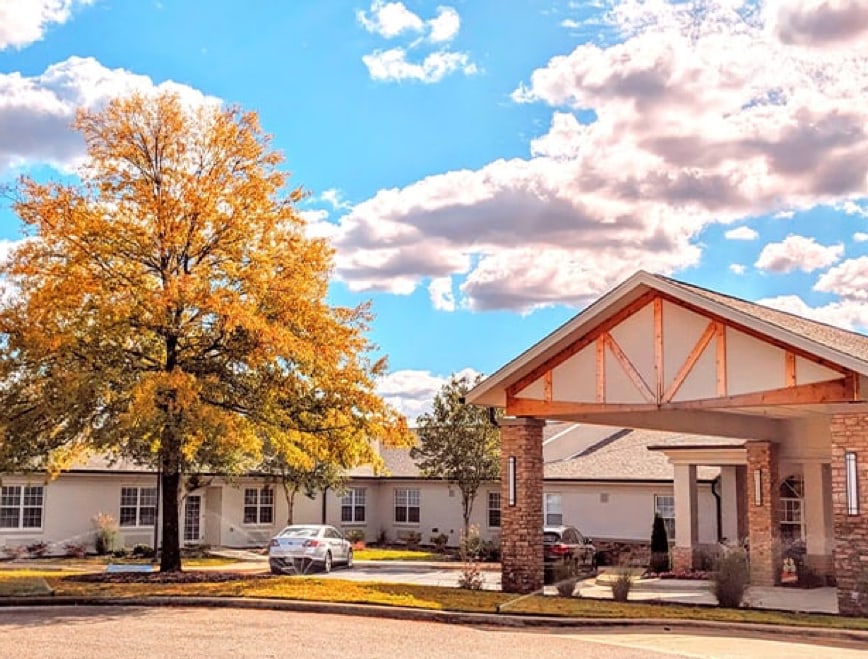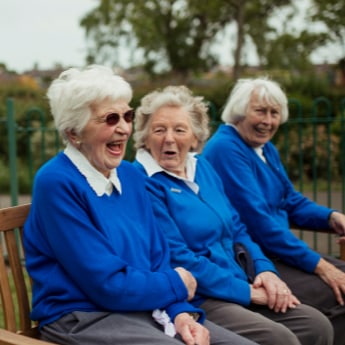Key Takeaways
- Alzheimer’s caregiving requires patience, structure, and a strong support team
- The 4 R’s of dementia care (Reassure, Redirect, Relax, Respond) guide daily interactions
- Home safety modifications and consistent routines help manage behavioral changes
- Memory care and assisted living provide specialized support when home care becomes challenging
- Caregiver self-care is crucial for providing quality care to your loved one
Caring for someone with Alzheimer’s disease can feel overwhelming, especially when you’re navigating this journey for the first time. Understanding how to provide engaging care for seniors with dementia while managing the emotional and physical challenges can make a significant difference in your caregiving experience.
Successful Alzheimer’s caregiving combines understanding the condition, creating supportive routines, maintaining safety, and knowing when to seek additional help through memory care or assisted living services. With the right approach and resources, you can help your loved one maintain dignity and quality of life throughout their journey.
Understanding Your Role as an Alzheimer’s Caregiver
What Caregiving Looks Like for Alzheimer’s Care
As Alzheimer’s progresses, your caregiving role evolves—from helping with medications and transportation to assisting with daily activities. Each day brings new challenges and small victories as you act as caregiver, advocate, and companion.
Understanding that this role changes over time helps you prepare for what’s ahead. Professional memory care and assisted living communities can provide specialized support when needs increase.
Building Your Support Team
Alzheimer’s caregiving shouldn’t be done alone. Build a support network of family, friends, healthcare professionals, and local support groups for guidance, emotional support, and care planning. Advocate for your loved one and don’t hesitate to ask questions.
Setting Realistic Expectations for the Journey Ahead
Alzheimer’s affects everyone differently. Focus on your loved one’s comfort and dignity, celebrate small victories, and adjust expectations as some days will be harder than others.
Planning ahead helps you feel more prepared, but remain flexible as needs change. Professional care communities like The Ridge at Grandeview can provide additional support for you and your loved one.
When to Consider Memory Care and Assisted Living
Signs It May Be Time for Additional Support
Consider professional care when safety, daily needs, or your own well-being are at risk. Trained caregivers can manage wandering, falls, hygiene, nutrition, and social needs—seeking help ensures quality care, not giving up.
Understanding Memory Care Programs
Memory care communities provide specialized programming designed specifically for people with Alzheimer’s and related conditions. Staff receive special training in dementia care techniques.
These communities offer structured activities, secure environments, and 24-hour supervision. The physical spaces are designed to be safe and easy to navigate for people with cognitive changes.
Memory care programs focus on maintaining dignity and quality of life while managing the symptoms of Alzheimer’s. They provide the specialized care that becomes necessary as the condition progresses.
How Assisted Living Communities Support Alzheimer’s Care
Assisted living communities can provide support for people in the early stages of Alzheimer’s who need help with daily activities but don’t yet require specialized memory care.
These communities offer medication management, meal preparation, and assistance with personal care while maintaining independence where possible. Social activities and structured programming provide engagement and purpose.
Staff in assisted living communities understand how to work with people experiencing cognitive changes and can adapt care as needs increase over time.
Explore care options early and involve your loved one in decisions. Highlight positives, work with staff, and maintain familiar routines to ensure a smooth transition and easier adjustment.
What Are the 4 R’s of Dementia Care?
The 4 R’s provide a framework for responding to challenging behaviors and situations:
- Reassure: Offer comfort and validate their feelings without arguing about reality
- Redirect: Gently shift attention to a different activity or topic
- Relax: Use calming techniques like music, gentle touch, or familiar objects
- Respond: Address underlying needs like hunger, fatigue, or discomfort

Taking Care of Yourself as a Caregiver
Caregiving can cause physical, emotional, and social stress, along with financial pressures and grief. Guilt is common, but prioritizing your own well-being helps you provide better care.
Connect with fellow caregivers and accept help from family, friends, or professional services like respite care. These supports provide advice, emotional relief, and essential breaks to sustain your caregiving.
Managing Stress and Finding Balance
Schedule regular breaks and stick to them, even if it’s just a short walk or phone call with a friend. Your physical and emotional health directly impacts your ability to provide care.
Maintain some activities and relationships outside of caregiving. Having other interests and connections helps prevent caregiver burnout.
Practice stress-reduction techniques like deep breathing, meditation, or gentle exercise. Managing your stress benefits both you and your loved one.
When to Ask for Help
Ask for help before you reach a crisis point. Warning signs include feeling constantly overwhelmed, having health problems, or feeling resentful about caregiving responsibilities.
Professional care services can supplement your efforts without replacing your involvement. You can still be an advocate and loving family member while sharing care responsibilities.
Remember that getting help demonstrates wisdom and love, not failure. Your loved one deserves care that meets their needs, and you deserve support in providing it.
Moving Forward with Confidence and Support
Planning for Future Care Needs
Alzheimer’s is progressive, so planning ahead helps you feel more prepared for changes. Discuss preferences and values while your loved one can still participate in these conversations.
Research care options in your area and understand the costs involved. Having this information ready makes decision-making easier when needs change.
Consider legal and financial planning, including powers of attorney and advance directives. These documents should be completed while your loved one can still make informed decisions.
Resources Available in Your Community
Local Alzheimer’s associations offer support groups, educational programs, and resource connections. Many communities also have adult day programs and respite care services.
Healthcare providers can connect you with social workers, care coordinators, and other professionals who understand Alzheimer’s care. Faith communities, volunteer organizations, and neighbor networks often provide informal support and assistance. Don’t navigate this alone when help is available.
Your Next Steps in the Caregiving Journey
If you’re considering additional support for your loved one, The Ridge at Grandeview welcomes the opportunity to discuss how our compassionate care team and wellness-focused programs can help. Contact us today to schedule a tour and learn more about how we can support your family’s journey with dignity and understanding.

















